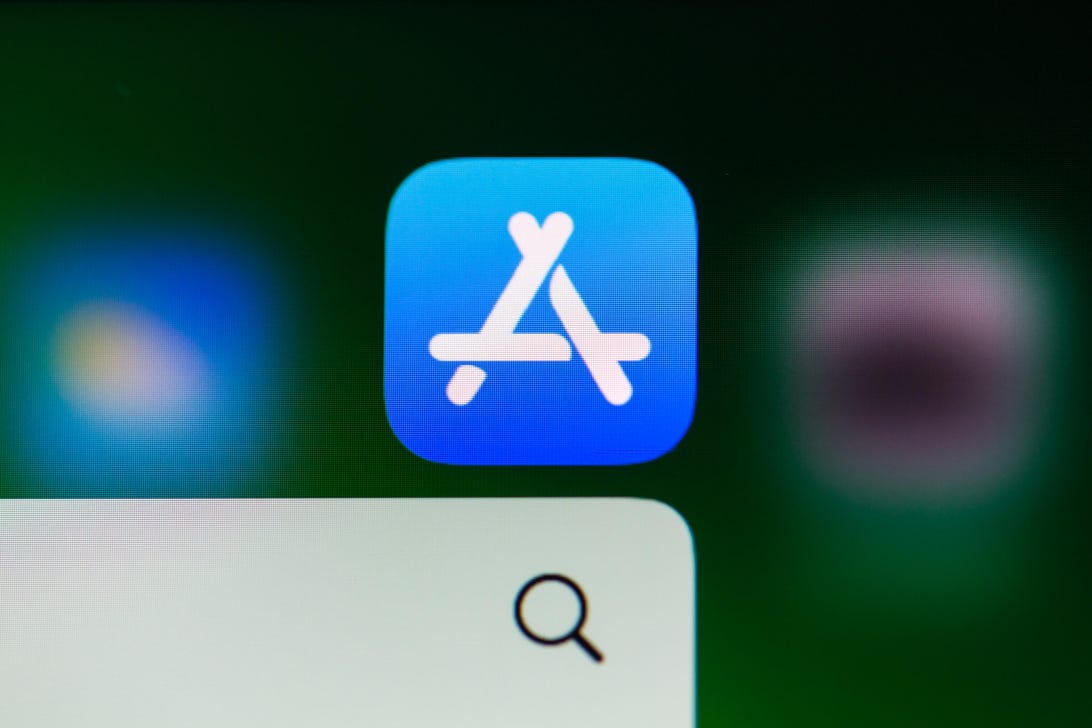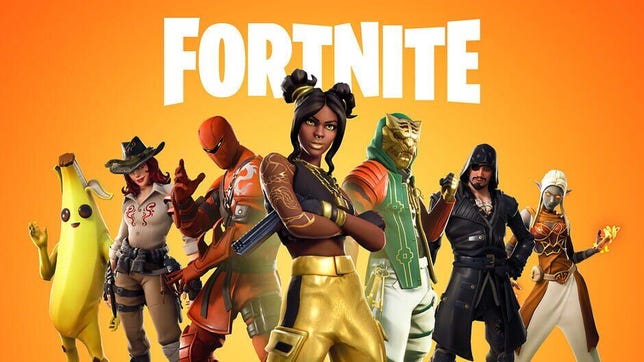
Epic Games and Apple are battling it out in what's being called one of the most important tech antitrust cases in years.
Angela Lang/CNETFor the past two weeks, Fortnite maker Epic Games and Apple have been battling in court over how the iPhone App Store should be run. Epic argues that Apple is acting like a monopoly that's overly controlling, opportunistic and unfair. Apple says Epic doesn't want to follow the rules. Together, they could remake the way we see antitrust in the age of big tech.
As part of its arguments, Apple called up Phil Schiller, who oversees the App Store. Now an Apple Fellow, Schiller had spent the past 30 years running the company's worldwide marketing. As part of his testimony, Schiller said Apple had focused on privacy and security from the App Store's inception.
Apple's lawyers cited a 2007 public letter from company co-founder Steve Jobs, in which he outlined Apple's focus on privacy. "As our phones become more powerful, these malicious programs will become more dangerous," he wrote at the time. "And since the iPhone is the most advanced phone ever, it will be a highly visible target."
Schiller said it's even more so the case now.
He also spoke about Apple's commission structure for the App Store, which he noted the company has never raised, but did lower for 90% of developers. And he defended Apple's approach to streaming game services from Xbox, Google and Sony, as opposed to video-streaming apps like Netflix, saying privacy policies and logins typically differ between games, regardless of whether they're in a catalog. "It isn't about movies. It's an Apps and Games Store," he said. "I do think there's a difference there."
It's Apple's highest profile defense so far, from one of its most high profile executives, in the past two weeks, during which Epic and Apple have used the court to air grievances and knock one another's businesses while promoting their own. What's unclear is whether these efforts will work. The proceedings are a bench trial, meaning the judge will decide the case, not a jury.
Epic's hit Fortnite game was kicked from Apple's App Store in August last year after Epic CEO Tim Sweeney approved a change to the app, purposely breaking Apple's rules against using alternative payment processing. Apple says its payment processing and strict app store rules are important to the company, helping it stand out from Google's competing and more widely used Android software, which allows "side-loading" apps and alternative app stores.

Fortnite is one of the most popular games in the world.
EpicThe outcome of the lawsuit could change everything we know about how Apple's App Store works, as well as Google's Play store too. Apple could be forced to disregard its concerns over app security, allowing alternative app stores and payment processing into its devices. Legal experts, lawmakers and regulators are closely watching as well, seeing the case as a first look at how antitrust laws could apply to tech giants.
US District Court Judge Yvonne Gonzalez Rogers has also taken opportunities throughout the past couple weeks to ask her own tough questions of both sides of the courtroom as they made their arguments.
Below are some of the things we learned during the court trial:
Opening salvos and Sweeney's testimony. When Katherine Forrest began her opening statement for Epic Games in its battle against Apple in a California courtroom on May 3, she blasted the iPhone maker as a monopolist, holding app makers hostage to its onerous licensing terms and commission structure, taking up to 30% off subscriptions and other sales without explicitly telling users. But when she asked a seemingly benign question of Sweeney on May 4, she revealed potential hypocrisy on her side too.
In the summer of 2020, Sweeney sent emails to Apple executives, asking them to allow his company to offer its own app store for iPhones, effectively an alternative to the system Apple's used since 2008. Apple has only allowed app developers to offer programs to iPhone and iPad users by submitting apps to its store where they go under review before being offered for sale or for free. Apple also requires all app developers to use its payment processing service if they want to sell subscriptions or in-app items, like a new look for a character or a power-up for their next turn.
Sweeney at the time appeared to be seeking a separate and special deal with Apple, something that didn't fit with the company's blustery lawsuit in which Forrest had claimed, "Epic is suing for change, not just for itself, but for all developers."
"The market will not self correct," she added. That requires the intervention of force, more powerful than even the largest company in the world has ever seen: Our justice system."
The next day, on May 4, she asked the soft-spoken Sweeney whether he'd have accepted a side deal with Apple, effectively getting special treatment while other app developers continue losing out. "Yes, I would have," he said.
Sweeney prefers an iPhone. When Apple's lawyer asked if part of the reason Sweeney prefers the device is Apple's treatment of customer data, privacy and security, he responded, "correct." He'd been handed Android devices but confirmed he gave them away.
Epic argues app scams undermine App Store. One way Epic's lawyers and executives attacked Apple's App Store was to highlight scam apps, stories from upset developers who complained Apple played favorites and instances where Apple generally didn't deliver on its promises.
While Epic saw that as a symptom of Apple's problems, the iPhone maker tried to frame it as a strength.
"The mistakes that I've been shown originated from customer and developer complaints," Trystan Kosmynka, a senior director of marketing at Apple, said in court on May 7. Rather than seeing these messages as signs the App Store team is struggling to do its job, he said, the activity shows people trust the store and want to help keep it safe. "I'm glad they're passionate and email our executives reporting the concerns and that we investigate them quickly and improve on it," he said.
There were some notable concerns Epic raised though, including a copy-cat app of its Fortnite game.
Judge Rogers took opportunities to ask tough questions of Apple too. When Kosmynka described Apple's review process, he added that the App Store team told developers it would approve 50% of apps in 24 hours and 90% within 48 hours, depending on the app. So Rogers asked if Apple delivered on those promises. "Absolutely," Kosmynka said, revealing that Apple currently approves 96% of apps within 24 hours.
She also challenged Apple's argument that restricting the app distribution to just the App Store is a worthwhile tradeoff. "One of the problems with limiting competition is that you don't get innovation, or at least that's one of the concerns," Rogers said. She also asked if Apple's had an outside party independently review what's on the App Store and pay bounties, similar to how tech companies do for security researchers who find vulnerabilities in their products.
Epic says Apple isn't as invested in its partner's success. During his testimony, Epic marketing director Matthew Weissinger said Apple doesn't help market Fortnite as much as Microsoft, Sony and Nintendo do for their Xbox, PlayStation and Switch. "We create all sorts of engagement, hours of engagement inside of Fortnite," Weissinger testified on May 10. "And then, at the last minute, Apple kind of injects themselves and says, 'We require 30% on this as well.'"
Epic executives said they didn't mind similar commissions they pay to Microsoft, Sony and Nintendo on their stores because their devices are typically sold at a loss, making up the difference with video game royalties. (This is often called the "razor-razorblades" business model, where the razor is sold for next to nothing, while the sales of blades provide companies with their profit.) Apple, meanwhile, makes a profit off every iPhone sold.
Epic argued video game industry profit models incentivize hardware makers to partner with developers because royalties from those game sales help make up the cost on the console. As a result, Epic said, the video game console makers have sponsored in-person and in-game events as part of their marketing. That's something Apple doesn't really do.
But Judge Rogers didn't appear convinced. The console makers, she said, "were promoting their product whenever you did a collaboration with them." So how was it different from Apple?
Weissinger said it came down to the types of people Apple funneled to Fortnite too. Console gamers are there to play a video game. The App Store has a lot more people who might be looking for than a Fortnite fix. "It's not necessarily people making the purchase, it also is like, all sorts of random folks who are going through that experience. It might be somebody looking for a fitness app or something like that," he said. The App Store, he argued, "just provides a less qualified audience or less qualified consumer."
Not just Project xCloud. Microsoft has been vocally complaining about Apple's app review process and its rules against game streaming services, like its formerly named Project xCloud Xbox service. In cross-examination with Nvidia's Aashish Patel, a director of product management who helped oversee its GeForce Now streaming service, Apple's lawyer said a streaming app from Nvidia had also been denied. In a steady stream, Apple's lawyer asked, "You're not a neutral observer in this dispute, correct?" "You want Epic to win this case, correct?" "Just maybe you're upset that Apple has rejected your app as a native app and you're not happy about that?" Patel said he was disappointed.
Xbox loses money -- kinda. One of Epic's arguments is that Apple's business model is to profit from the iPhone at sale. Microsoft's Xbox and Sony's PlayStation follow the razor-and-razor-blades model, where they sell the console at a loss (the razor) and then sell the video games and accessories at a profit (razor blades). Though this has been commonly known, a Microsoft representative confirmed during trial that its Xbox itself has never turned a profit.
Apple spends a lot on events. We all knew Apple events are slick and tightly choreographed. But now we're learning they cost a bundle too. Schiller told the court on May 17 that Apple spends about $50 million each year on its Worldwide Developers Conference, also known as WWDC. Depending on how you see the return on investment there, Schiller said about 25 million people viewed the event before it was made widely public and free amid the coronavirus pandemic. Now, it's about 50 million. And, he added, aside from ticket sales and the $99 annual developer fee, Apple doesn't charge for WWDC.
Apple spends a lot on research and development. As part of his testimony on May 17, Schiller revealed that Apple's building a facility on its Apple Park "spaceship" campus specifically for developers. He didn't say much else about it, but the detail was part of a larger point he was making in testimony about how much Apple spends on research and development of its software, hardware and developer ecosystem, effectively justifying the 30% commission it charges from in-app purchases. He also noted that Apple's spent $100 billion specifically on R&D in the last 15 years, including for retina displays, its in-house A-series and M-series chips and the software that helps power them.
Article From & Read More ( Apple puts Phil Schiller on the stand to defend App Store in Fortnite lawsuit - CNET )https://ift.tt/3eTvu8A
Technology
Bagikan Berita Ini














0 Response to "Apple puts Phil Schiller on the stand to defend App Store in Fortnite lawsuit - CNET"
Posting Komentar